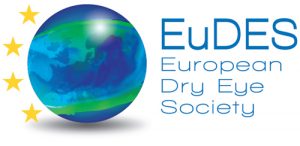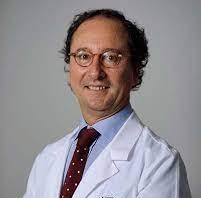The European Dry Eye Society is the newest addition to the panorama of scientific societies dealing with Dry Eye. An exceptional testimonial, Prof. José M. Benítez del Castillo, tells us about its history and special features.
Where did the idea of creating a specific company for Dry Eye come from? How did you start the project?
The idea came from a group of European ophthalmologists, specialists in Dry Eye, who were aware of the lack of a specific point of view of European ophthalmologists on Dry Eye disease. In the Western world we have embraced the idea of TFOS, but it is a predominantly global point of view, whereas in the East they have their own specific society, ADES, which is the mouthpiece of their idea of what Dry Eye is. It is precisely for this reason that we considered the European position to be inadequately represented, since there are different realities in Europe than in the United States and Asia. So we felt it necessary to point out this reality.
Furthermore, in countries such as the United States, the position of the optometrist is fundamental, whereas in Europe, with the exception of the United Kingdom, optometrists have no recognised expertise in Dry Eye, which is an area reserved for ophthalmologists.
The markets are also different, as each area has access to different treatments and medicinal products.
In short, the aim is to give a voice to the many colleagues who are not part of TFOS, but who know a lot about Dry Eye and have a lot to say, here in Europe.
 On 18 and 19 June, the first EuDes congress was held in Paris, in hybrid form (in presence and remote). How was this first experience?
On 18 and 19 June, the first EuDes congress was held in Paris, in hybrid form (in presence and remote). How was this first experience?
The truth is that we received a lot of support from our colleagues, many of whom had already joined the company, and also from private companies, so we are really happy with the result.
Our initial idea was to have the event take place in presence, but given the current situation, the congress was predominantly virtual, although the steering committee and a few colleagues from Paris participated in presence. All presentations were accessible from the society's website for all partner ophthalmologists.
However, since the congress was a great success, we are ready to organise next year's event, which will again be held in Paris, in attendance, while the venues for the 2023 and 2024 congresses will be Italy and Spain respectively.
How do you see the future of the different forms of Dry Eye and their treatment?
One of the things that I see clearly is that currently we have all focused on the classification of Dry Eye provided by TFOS, i.e. evaporative Dry Eye or aquedeficient, when in Asia for example there is another type of Dry Eye that is mucodeficient. This classification should be borne in mind because in Europe we currently have no treatment for this type of Dry Eye.
On the other hand, it is very important to make information about Dry Eye accessible to generalist ophthalmologists, so that they know about it, become interested in it and determine more opportunities for diagnosis. Furthermore, we realise that there are more and more tools to treat the most common form of Dry Eye, evaporative Dry Eye due to Meibomian gland dysfunction, and that we need more drug treatments, which are drugs and not just medical devices.
Finally, it is important to inform all generalist ophthalmologists and health authorities of the importance of Dry Eye. There are patients who do not go blind, but have a poor quality of life, and I believe that the health authorities should ensure that these patients have access to quality treatment, as their use is chronic and they currently have to pay for it out of their own pocket. These patients are generally not properly evaluated in their environment, in their work and by the health authorities.

Prof. José M. Benítez del Castillo Sánchez
Professor of Ophthalmology at the Universidad Complutense de Madrid and Director of the Ocular Surface and Inflammation Unit (USIO) and at the Hospital Clínico San Carlos, Prof. Del Castillo has extensive clinical experience and specialises in the medical and surgical treatment of corneal and ocular surface diseases, and in the management of patients suffering from dry eye, Meibomian gland dysfunction, allergy and uveitis.
He has countless awards and publications in high impact scientific journals to his credit.
Member of numerous scientific societies, he is a member, together with Prof. Christophe Baudouin, Prof. Elisabeth Messmer and Prof. Maurizio Rolando, of the EuDes Executive Committee www.dryeye-society.com
Dr. Carmelo Chines
Direttore responsabile
